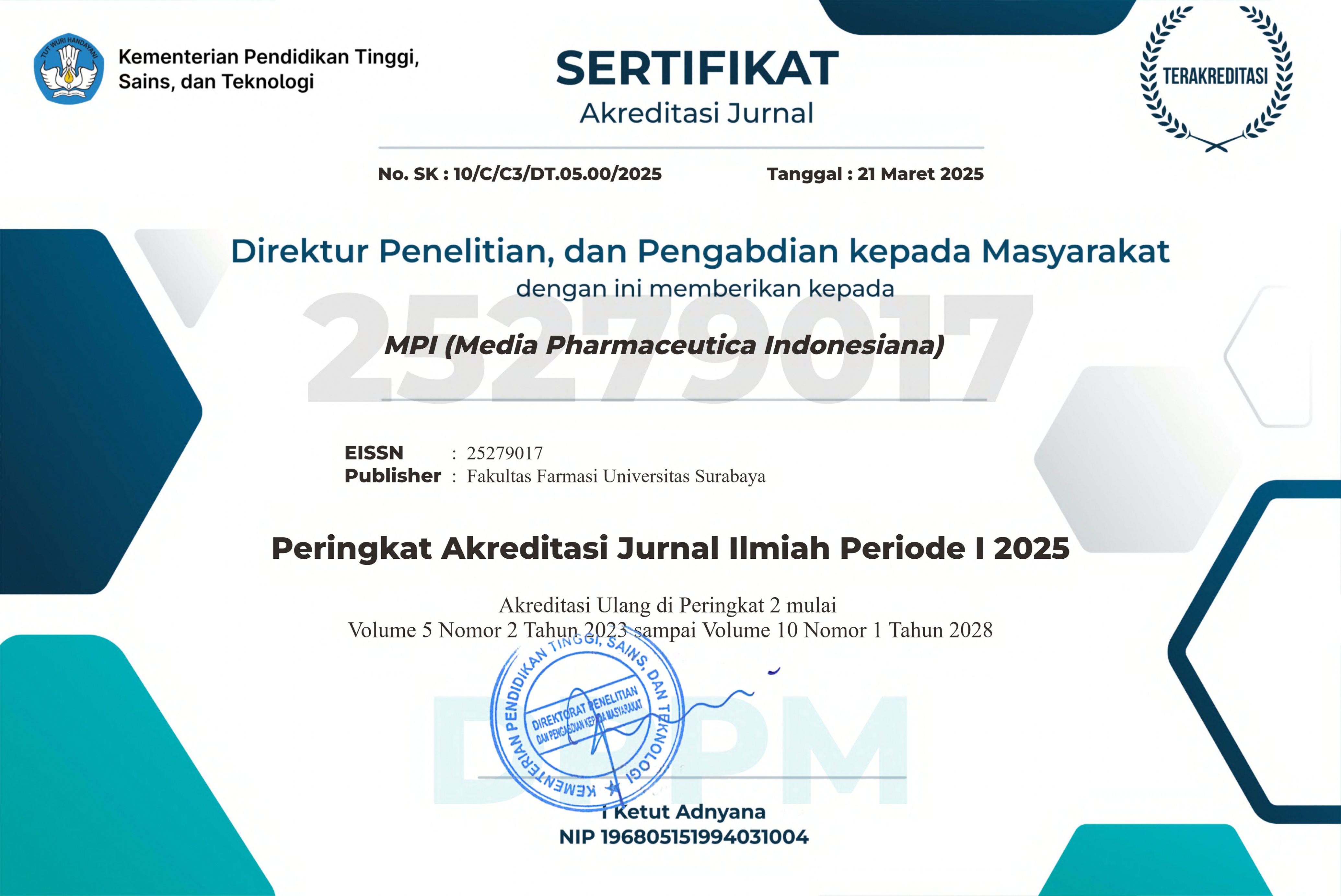Pengaruh Edukasi Perubahan Gaya Hidup Sehat terhadap Clinical Outcome pada Pasien di Rumah Diabetes Universitas Surabaya
 Abstract Views:
880 times
Abstract Views:
880 times
 PDF Downloads:
1041 times
PDF Downloads:
1041 times
Abstract
Prevalensi diabetes melitus yang semakin meningkat setiap tahunnya cenderung meningkatkan risiko komplikasi dan kematian akibat diabetes melitus itu sendiri. Tujuan penelitian ini adalah untuk mengetahui pengaruh edukasi perubahan gaya hidup sehat terhadap clinical outcome (parameter klinis) pada pasien di Rumah Diabetes Universitas Surabaya. Rancangan penelitian menggunakan one group pretest-posttest yang diikuti oleh 27 subjek diabetes melitus di Rumah Diabetes Universitas Surabaya. Seluruh subjek diberikan edukasi (intervensi) dengan perangkat piring sehat dengan durasi 4 minggu. Pengukuran clinical outcome dilakukan terhadap gula darah puasa, indeks massa tubuh (IMT), lingkar perut, dan tekanan darah. Uji statistika yang digunakan adalah Wilcoxon signed rank test dan paired t-test. Hasil penelitian menunjukkan bahwa edukasi perubahan gaya hidup sehat berpengaruh signifikan terhadap penurunan gula darah puasa (p<0,001), indeks massa tubuh (p=0,005), lingkar perut (p=0,005), tekanan darah sistolik (p=0,013), namun tidak signifikan terhadap tekanan darah diastolik (p=0,247). Dapat disimpulkan bahwa edukasi perubahan gaya hidup sehat berpengaruh terhadap gula darah puasa, indeks massa tubuh, lingkar perut, dan tekanan darah sistolik. Keterbatasan dalam penelitian ini adalah keikutsertaan penderita diabetes melitus yang sedikit serta tidak adanya kelompok kontrol sebagai pembanding.
Downloads

This work is licensed under a Creative Commons Attribution-ShareAlike 4.0 International License.
Articles published in MPI are licensed under a Creative Commons Attribution-ShareAlike 4.0 International (CC BY-SA) license. You are free to copy, transform, or redistribute articles for any lawful purpose in any medium, provided you give appropriate credit to the original author(s) and MPI, link to the license, indicate if changes were made, and redistribute any derivative work under the same license.
Copyright on articles is retained by the respective author(s), without restrictions. A non-exclusive license is granted to MPI to publish the article and identify itself as its original publisher, along with the commercial right to include the article in a hardcopy issue for sale to libraries and individuals.
By publishing in MPI, authors grant any third party the right to use their article to the extent provided by the CC BY-SA license.

 DOI:
DOI:










